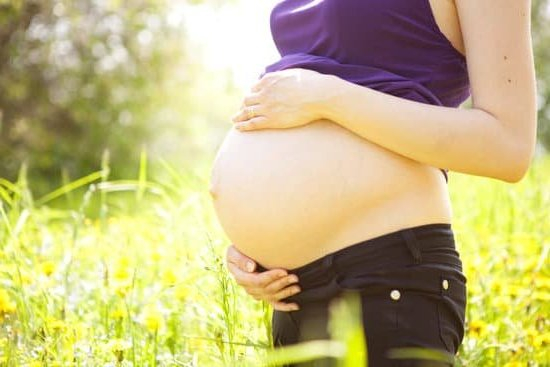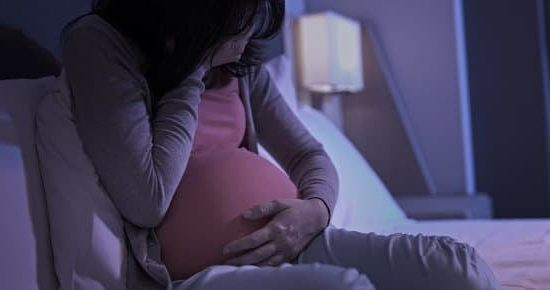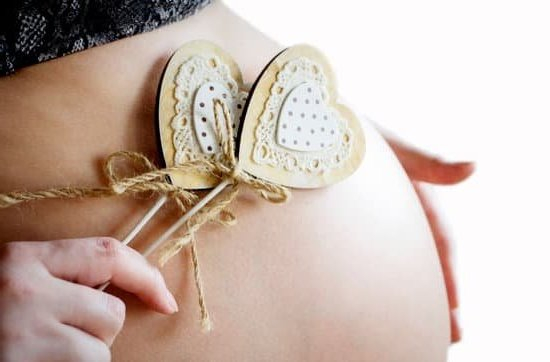Pain In Lower Left Back During Pregnancy
Lower back pain during pregnancy is a common complaint. It is estimated that anywhere from 50% to 70% of pregnant women will experience some form of back pain during their pregnancy. The pain can range from a mild annoyance to something that is quite debilitating.
There are a number of reasons why pregnant women experience back pain. The weight of the baby and the additional weight of the pregnancy itself can put a lot of strain on the back. The change in posture that often occurs during pregnancy can also lead to back pain. Hormones that are released during pregnancy can also loosen the ligaments in the pelvic area, which can lead to pain in the back.
There are a number of things that you can do to help relieve back pain during pregnancy. One of the most important things is to make sure that you are maintaining good posture. Try to keep your back straight and avoid slouching. You may also want to try to limit the amount of time that you spend sitting or standing. When you can, try to take breaks to move around and stretch. You can also try exercises and stretches specifically designed for pregnant women to help relieve back pain.
If the back pain is particularly severe, your doctor may prescribe medication to help relieve the pain. In some cases, if the pain is severe and persistent, you may need to have surgery to correct a problem with your back.
If you are experiencing lower back pain during pregnancy, be sure to talk to your doctor. He or she can help you find ways to relieve the pain and can advise you on what to do if the pain is severe.
Normal Pregnancy Pains
The experience of pregnancy is different for every woman. Many women report feeling no different than they did before they were pregnant, while others report a wide range of symptoms. While some symptoms are specific to early pregnancy, such as nausea and tiredness, many symptoms, such as backache and heartburn, can continue throughout the nine months.
One of the most common complaints of pregnant women is pain. Pregnancy pain can be caused by a number of factors, including the physical changes that occur in the body, the added weight of the baby and the uterus, and the changes in hormone levels.
Most pregnancy pain is normal and will go away after the baby is born. However, if you are experiencing pain that is severe or lasts for more than a few days, be sure to talk to your healthcare provider.
Backache is one of the most common types of pain experienced during pregnancy. This pain can be caused by the added weight of the baby and the uterus, as well as the changes in hormone levels. Many women find that their backache gets worse as their pregnancy progresses.
There are a number of things that you can do to help relieve backache during pregnancy. Be sure to wear a supportive bra, avoid lifting heavy objects, and practice good posture. You can also try using a heating pad or taking a warm bath.
Another common type of pain during pregnancy is cramping. Cramping can be caused by the expanding uterus, constipation, or gas. It is usually mild and goes away after a few minutes.
If you are experiencing cramping that is severe or lasts for more than a few minutes, be sure to call your healthcare provider.
Heartburn is a common problem during pregnancy. This is caused by the hormones that are released during pregnancy, which can cause the valve that separates the stomach and esophagus to relax. This allows stomach acid to flow back up into the esophagus, causing heartburn.
There are a number of things that you can do to help relieve heartburn during pregnancy. Be sure to avoid eating large meals, drink plenty of water, and avoid eating spicy or acidic foods. You can also try taking a antacid.
Another common complaint of pregnant women is nausea and vomiting. This is caused by the changes in hormone levels and can occur at any time during the day.
There are a number of things that you can do to help relieve nausea and vomiting during pregnancy. Be sure to eat small, frequent meals, avoid eating spicy or fatty foods, and drink plenty of fluids. You can also try taking ginger or vitamin B6 supplements.
Tiredness is another common symptom of early pregnancy. This is caused by the changes in hormone levels and the added work that the body is doing. Many women find that they need more sleep than usual during pregnancy.
There are a number of things that you can do to help relieve tiredness during pregnancy. Be sure to get plenty of rest, exercise regularly, and avoid caffeine.
Pregnancy is a time of change for your body. You may experience a wide range of symptoms, some of which are normal and will go away after the baby is born. If you are experiencing pain that is severe or lasts for more than a few days, be sure to talk to your healthcare provider.
Is Stomach Pain A Symptom Of Pregnancy
No, stomach pain is not a symptom of pregnancy, but it could be a sign of another medical condition. Some women experience cramps or a general aching in their stomach during early pregnancy, but this is not always the case. If you are experiencing stomach pain, it is best to consult with your doctor to determine the cause.
What Pain Medication Is Safe For Pregnancy
?
There are many different types of pain medication, both prescription and over-the-counter (OTC), that are safe for pregnant women to take. However, it is important to consult with your health care provider before taking any medication, as some pain medications may not be safe for pregnant women.
The most common type of pain medication that is safe for pregnant women is acetaminophen, which is found in over-the-counter medications such as Tylenol. Ibuprofen is another type of pain medication that is safe for pregnant women to take, and is found in over-the-counter medications such as Advil and Motrin.
There are also a number of prescription pain medications that are safe for pregnant women to take. These medications include opioids such as morphine and codeine, as well as non-steroidal anti-inflammatory drugs (NSAIDs) such as aspirin and naproxen.
However, it is important to note that pregnant women should avoid taking any medications that are not approved by their health care provider. Additionally, pregnant women should always consult with their health care provider before taking any new medications, including over-the-counter medications.
Gallbladder Pain During Pregnancy
Gallbladder pain during pregnancy is a common complaint. The gallbladder is a small organ located just below the liver. It stores bile, a digestive juice made in the liver. Bile helps to digest fats in the small intestine.
The gallbladder can become inflamed or infected. This is called cholecystitis. Gallbladder pain during pregnancy is usually caused by cholecystitis.
The symptoms of gallbladder pain during pregnancy include:
• Pain in the upper right side of the abdomen
• Pain that radiates to the back
• Nausea
• Vomiting
• Fever
If you experience any of these symptoms, call your doctor.
Treatment for gallbladder pain during pregnancy includes antibiotics and pain relief. If the pain is severe, you may need to be hospitalized.
The gallbladder will usually shrink and disappear after pregnancy. In a small number of women, the gallbladder will remain enlarged and require surgery.
If you are pregnant and experience gallbladder pain, call your doctor. Early diagnosis and treatment is important to avoid complications.

Welcome to my fertility blog. This is a space where I will be sharing my experiences as I navigate through the world of fertility treatments, as well as provide information and resources about fertility and pregnancy.





